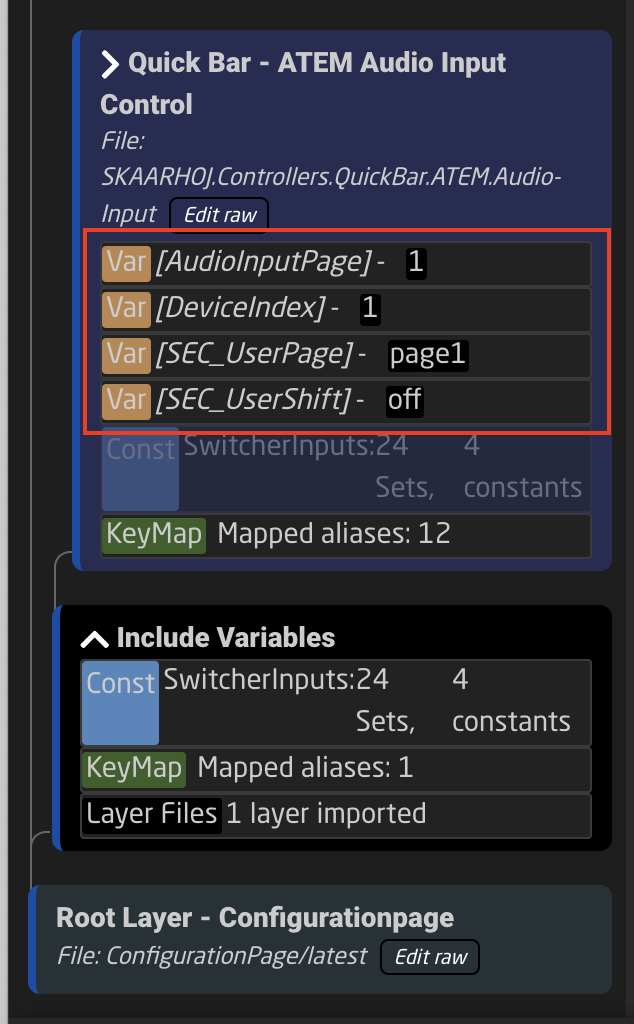Variables
For increased flexibility in a configuration Variables are often applied. A variable works as an adjustable value which can be numerical or text based that can be used in place of a set value.
Variables live on the layers of the tree but are used in lots of different places and in different ways. It is on the layers that you can see what Variables are available, their names, and their current value. In the example below you can see how

There are two types of variables; range or options.
Range Variables

| Name | Variable's name |
| Description | Easy to understand description to help identify the variable's purpose |
| Type | Range or Options |
| Min | Minimum value for the variable (must be lower than the max). Can be set to 0 |
| Max | Maximum value for the variable (must be higher than the max) |
| Center (or Default) | Default value for the variable if not saved on panel reboot. |
| Default to first | Sets default value to the first. |
| Default Value | Define the default value if not first. |
| Always define | Separates this instance of the variable from ones of the same name lower in the tree (overridden by Expand Scope). |
| Accept Any Value | Allows any value to be accepted during conformity check. |
| Expand Scope | Allows the variable to be used lower in the tree towards the root. |
| Capture | Allows a variable to capture any expanded-scope variable from a branch. |
| Persistent | Saves value between panel reboots. |
| Zero set Allow | Allows for the variable to be blank |
| Force value (test) | Force set a value for the variable, use for testing |
Options Variable
| Name | Variable's name |
| Description | Easy to understand description to help identify the variable's purpose |
| Type | Range or Options |
| Value | Value string for the variable |
| Label | Easy to understand label used for feedback |
| Flag | Sets the option as the default value |
| Trash | Deletes the Option |
| Duplicate | Duplicates the line |
| +1 | Increments the line by +1 |
| Add option | Default value for the variable if not saved on panel reboot. |

| Default to first | Sets default value to the first. |
| Default Value | Define the default value if not first. |
| Always define | Separates this instance of the variable from ones of the same name lower in the tree (overridden by Expand Scope). |
| Accept Any Value | Allows any value to be accepted during conformity check. |
| Expand Scope | Allows the variable to be used lower in the tree towards the root. |
| Capture | Allows a variable to capture any expanded-scope variable from a branch. |
| Persistent | Saves value between panel reboots. |
| Zero set Allow | Allows for the variable to be blank |
| Force value (test) | Force set a value for the variable, use for testing |
Using Variables
Though these are not the only uses for variables, the these represent the most common usages.
Coming Soon


